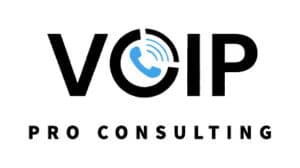In this digital age, it is essential to have reliable communications without breaking the bank. VoIP (Voice over Internet Protocol) services are becoming increasingly common, providing us with an alternative to traditional landlines and cell phones without sacrificing quality. But one of the major questions that still remains is whether or not VoIP services are cheaper than regular phones. It’s time to find out just how much you can save if you switch from a regular phone line to a Voice over Internet Protocol system – so let’s get started!
Overview of VoIP and its benefits
VoIP, or Voice over Internet Protocol, is quickly becoming the most popular alternative for many individuals and businesses when it comes to their phone service needs. VoIP works through the internet instead of traditional phone lines, providing easy access for both domestic and international calls with efficient communication solutions. The main benefit of VoIP is its cost-efficiency – making it cheaper than regular phones in the long run due to the lack of fees from providers. Additionally, users have access to many features like caller ID, call forwarding, three-way conferences, etc., all included with no additional expenses. All that’s needed to get started is a high speed internet connection and a VoIP compatible device!
Compare the costs and features of VoIP compared to regular phones
Voice over Internet Protocol (VoIP) technology is becoming increasingly popular for both commercial and residential customers in search of a more cost-effective communication solution. When compared to regular phone services, customers find that VoIP typically provides more features at a significantly lower cost. VoIP utilizes existing internet connections, eliminating the need for physical phone lines or complex equipment setups. This helps to reduce installation costs as well as ongoing subscription fees for unlimited calling. Additionally, with VoIP services such as conference calls, video conferencing and instant messaging available often at no extra charge, businesses can drastically reduce their telecommunications expenses. While traditional phone services may still be the right choice depending on individual needs or facility limitations, VoIP stands out as an attractive option due to its low total ownership costs and comprehensive featureset.
Look at the overall cost savings with VoIP
If you’re looking to cut costs while still keeping your communication systems up-to-date and reliable, then VoIP is definitely a great option. With VoIP, you can save money by eliminating the need for in-house phone systems, phone lines and long distance charges. You can also take advantage of lower cost calling plans for local, national and international calls. Ultimately, the financial savings that VoIP offers make it a much better choice than regular phones.
Examples and case studies of businesses that have switched to VoIP
When it comes to exploring cost efficient phone options, many businesses are turning to Voice-over-IP, or VoIP. From small start-ups to global corporations, the ability to make voice calls over an internet connection offers a variety of benefits and can drastically reduce monthly phone expenses. For example, LinkedIn replaced its traditional PBX system with a cloud-based VoIP service which allowed them to easily add more users and lines far more quickly than had been possible with their prior system. Additionally, a dental office in California switched from their outdated landline phones to VoIP in order to save costs, increase scalability and enjoy cutting edge features like teleconferencing at no extra charge. With numerous cost effective benefits and easy implementation processes, switching away from traditional business phones is proving to be an increasingly popular choice for companies of all sizes.
Considerations for selecting a service provider for VoIP
When selecting a service provider for VoIP, there are several considerations to make. Cost is often high on the list, as VoIP is usually cheaper than regular phone services. But other factors should be taken into account as well, like call quality, features offered, and customer support. It’s important to review the provider’s available packages and understand exactly what you’re getting for your money. VoIP is becoming a very popular choice for businesses and home users alike, so take your time to determine which provider and package best meets your needs!
Quality assurance tips for making sure your VoIP system is reliable
Quality assurance for VoIP systems is both critical and complex. There are a few simple steps you can take to help ensure your system runs reliably and provides the service you need at a lower cost than traditional phone systems. Make sure your bandwidth and Internet connection are powerful enough to support the number of simultaneous calls you plan on making, verify the encryption protocols and authentication measures used by your provider’s network, compare Quality of Service levels between providers to get the best performance, and lastly track usage regularly to uncover any underlying issues. Solidifying these elements will result in maximum uptime, trustworthy connections, and assured performance regardless of location.
In conclusion, VoIP is being embraced by businesses and individuals alike as a cost effective alternative to traditional phone systems. The savings and features available with one of these services can vary greatly depending on the provider you choose. Make sure that you research your options thoroughly before making a decision in order to get the most comprehensive coverage and features for the right price. Additionally, there are some important considerations for quality assurance that you should be aware of and use to ensure that your VOIP system is reliable and up to date. By evaluating all of these points, you can make an educated decision on whether or not a VoIP system is the best solution for your needs.




